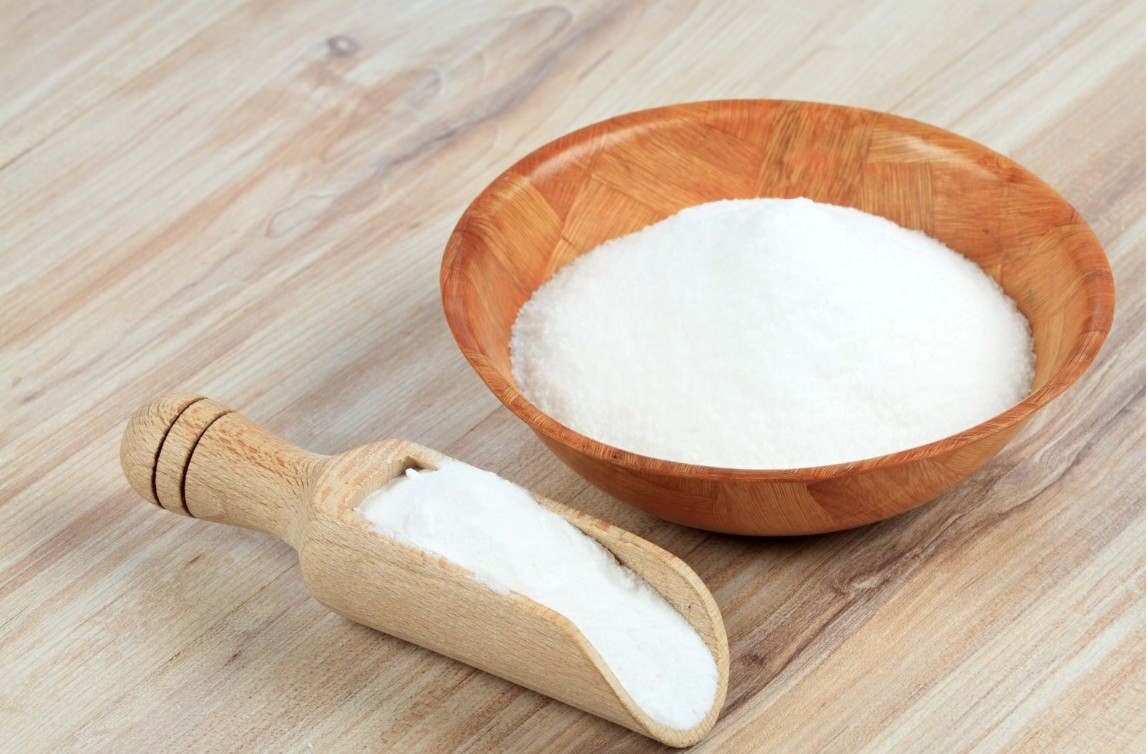Interventions and Insights – Exploring the Delicate Balance Between Medical Innovation and Nature’s Wisdom
In the grand, intricate theatre of the human body, where every act and scene is meticulously choreographed by nature’s unseen hands, there lies a tale of simplicity and wonder. It’s a story that unfolds in the bustling corridors of Mbale hospital, set against the backdrop of a challenge as old as time itself: obstructed labour. This narrative, however, introduces a twist—a simple solution of sodium bicarbonate, commonly known as baking soda. Let’s have a ganders into this light-hearted exploration of how even the most straightforward interventions can reveal the amazing resilience and adaptability of our bodies.
The Quest for Answers: Sodium Bicarbonate and Obstructed Labour
Our journey begins with a group of dedicated researchers who posed an intriguing question: could a single dose of sodium bicarbonate, administered before surgery, make a significant difference for women experiencing obstructed labour? Obstructed labour, a daunting hurdle for many mothers-to-be, can lead to adverse outcomes for both mother and child. The researchers embarked on a mission to uncover a potentially safe and effective way to improve these outcomes, turning their attention to the humble yet versatile sodium bicarbonate.
The stage was set at Mbale hospital, where from July 2018 to September 2019, a meticulously planned double-blind, randomised controlled trial unfolded. The study comprised 477 women at term, each facing the challenge of obstructed labour, yet hopeful for a glorious vaginal birth. These women were divided into two groups: one received a 50ml dose of 8.4% sodium bicarbonate, while the other was given a 50ml dose of 0.9% sodium chloride as a control. In addition to this, they all received the standard preoperative care, underscoring the researchers’ commitment to safety and well-being.
The anticipation was palpable as the researchers sought to measure the impact of this intervention on maternal and fetal blood lactate levels—indicators of how well the body was coping with the stress of labour. Additionally, they looked at other critical outcomes, such as neonatal sepsis and early neonatal death, as well as potential side effects of the intervention. It was a comprehensive effort to gauge the efficacy and safety of sodium bicarbonate in this delicate context.
In exploring the intriguing findings from the study conducted at Mbale hospital, it’s crucial to tread thoughtfully through the complex ethical terrain that underpins medical research, especially when it intersects with the delicate process of childbirth. While the study offers valuable insights into the safety and potential effects of sodium bicarbonate infusion for women experiencing obstructed labour, an ethical caveat is warranted to frame our understanding and expectations.
Firstly, acknowledging the limitations of conducting such research in a clinical setting is vital for a holistic appreciation of the findings. Birth, in its essence, is not a medical event but a deeply personal and physiological process, influenced by a myriad of factors that extend beyond the clinical.
The environment in which birth takes place can profoundly affect the labour process. Clinical settings, with their inherent stimuli such as the sound of beepy machines, the frequency of interventions like vaginal exams, and the general atmosphere, are very likely to inadvertently impact the natural progression of labour. These factors can introduce stress and discomfort for the labouring woman, potentially altering the physiological course of childbirth. This, in turn, could influence the outcomes being measured, such as maternal and fetal lactate levels, and the overall labour experience. Thus, while the study provides valuable data within its defined parameters, it’s important to recognise that these settings might not fully encapsulate the breadth of physiological birth.
As the data trickled in, the findings painted a picture of cautious optimism. The intervention group showed a median maternal venous lactate level of 6.4, slightly lower than the 7.5 observed in the control group. However, this difference was not statistically significant, leading to a thoughtful pause among the researchers. The Vargha and Delaney effect size further suggested that the impact of sodium bicarbonate was minimal at best. Yet, amidst these numbers, a silver lining emerged: the intervention was deemed ‘safe’.
Ethical Considerations and the Limitations of Clinical Settings
In the pursuit of advancing medical knowledge and improving patient outcomes, the essence of scientific inquiry lies not only in seeking answers but also in maintaining a healthy skepticism towards the results we uncover. Reflecting on the study conducted at Mbale hospital, which explored the impact of sodium bicarbonate infusion in cases of obstructed labor, it’s important to acknowledge the limitations of our understanding, especially regarding long-term safety and effects. While the study concluded that this intervention was safe within the observed timeframe, a crucial point of contention arises from the absence of long-term data, particularly concerning the well-being of the babies over several years following the procedure.
The declaration of an intervention as ‘safe’ is a substantial assertion that carries significant weight, influencing clinical practices and patient care decisions. However, the concept of safety should not be confined to immediate or short-term outcomes alone. It extends far beyond, encompassing potential long-term implications that might not be immediately apparent. In the context of childbirth and neonatal care, the stakes are particularly high, as interventions during this critical period can have lasting effects on both the mother and child.
The absence of long-term follow-up data on the infants involved in the study represents a gap in our understanding of the full spectrum of effects that sodium bicarbonate infusion might have. Questions remain unanswered about developmental milestones, health outcomes, and potential subtle effects that could manifest later in life. These considerations are crucial, as they touch upon the very essence of ethical medical practice—first, do no harm.
This point underscores a broader argument: the importance of challenging and critically evaluating medical studies, even those that appear benign on the surface. It’s a reminder that what we currently perceive as safe or effective is often based on the data and perspectives available to us at a given time. Science, in its ever-evolving nature, continually builds upon previous knowledge, sometimes overturning or refining what we thought we knew.
Therefore, while the study’s findings contribute valuable insights into the management of obstructed labour, they also open a dialogue about the necessity for comprehensive, long-term studies to truly understand the implications of medical interventions. It emphasises the need for ongoing research efforts that not only focus on immediate clinical outcomes but also diligently track long-term effects on patients and their children. Such endeavours are essential to building a more complete picture of safety and efficacy, guiding us towards interventions that are not only effective in the moment but also benevolent in their lasting impact.
So, what does this tale tell us about the marvels of the human body? It reminds us that sometimes, in the quest for health and well-being, the answers may not always be complex or groundbreaking. Even when the results aren’t as dramatic as hoped, there’s value in exploring every possibility—because, in medicine, every bit of knowledge contributes to the larger understanding.
The study at Mbale hospital, with its focus on sodium bicarbonate, underscores the principle that safety and care are paramount, especially in the most critical moments of life. It also highlights the body’s remarkable capacity to navigate the challenges of childbirth, often with little need for intervention.
As we stand at the crossroads of innovation and tradition in the journey of childbirth, a question beckons to each of us: Should we continue to explore interventions in the process of labour, or is it time to pause and reflect on what we truly understand about childbirth? Is the administration of sodium bicarbonate an intervention, or merely a gentle nudge to nature’s course? As we delve deeper into the complexities of childbirth, one thing becomes increasingly clear: our understanding is still in its infancy. The decision to intervene, to explore, or to step back rests in our collective hands. Are we intervening too much, experimenting with the delicate balance of birth, or are we still far from unlocking the mysteries that govern this natural phenomenon? It’s a moment for introspection, for weighing the known against the unknown. You, the reader, play a crucial role in this dialogue. What are your thoughts? Do we know enough about childbirth to keep intervening and experimenting, or is it time to embrace a more observant stance, letting nature take its lead? Your perspective is invaluable in this ongoing conversation about the future of childbirth and medical science. You decide.
For those passionate about delving into the depths of birth work and aspiring to become professional birth keepers without the extensive, expensive and over medicalised, three-year midwifery training, we invite you to explore our innovative approach. Register for our complimentary taster session and discover if our one-year Birth Keeping course aligns with your vision. This program is designed for women who dream of empowering other women to make autonomous decisions in a non-clinical setting, offering a transformative journey into the heart of birth support. Join us in our mission to change the world, one birth at a time, and see how you can contribute to a global change that respects, honours, and uplifts women throughout their birthing journey.





